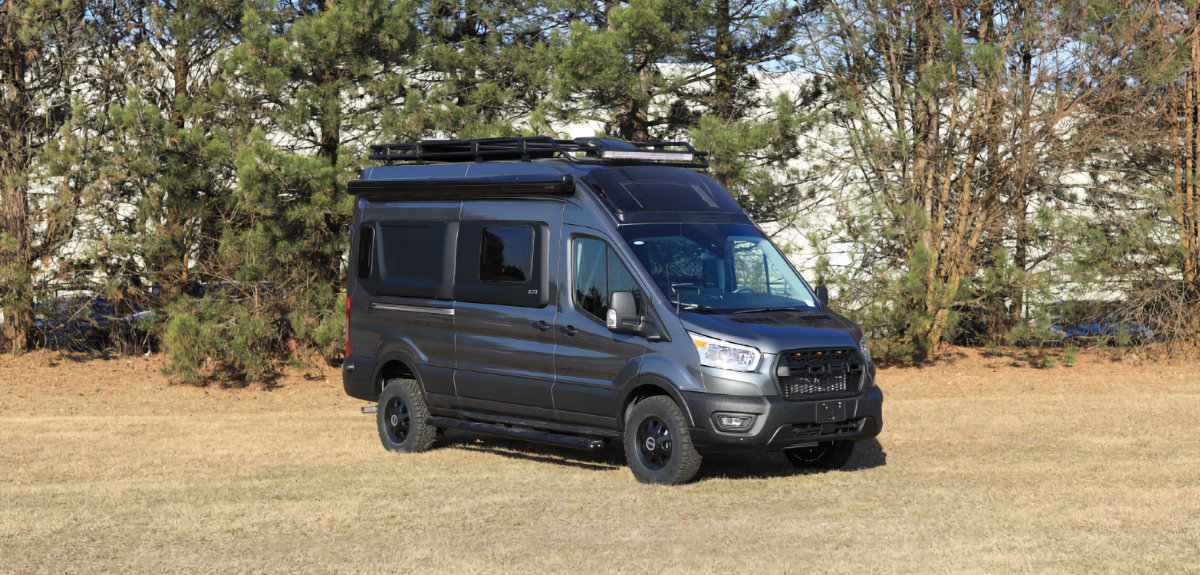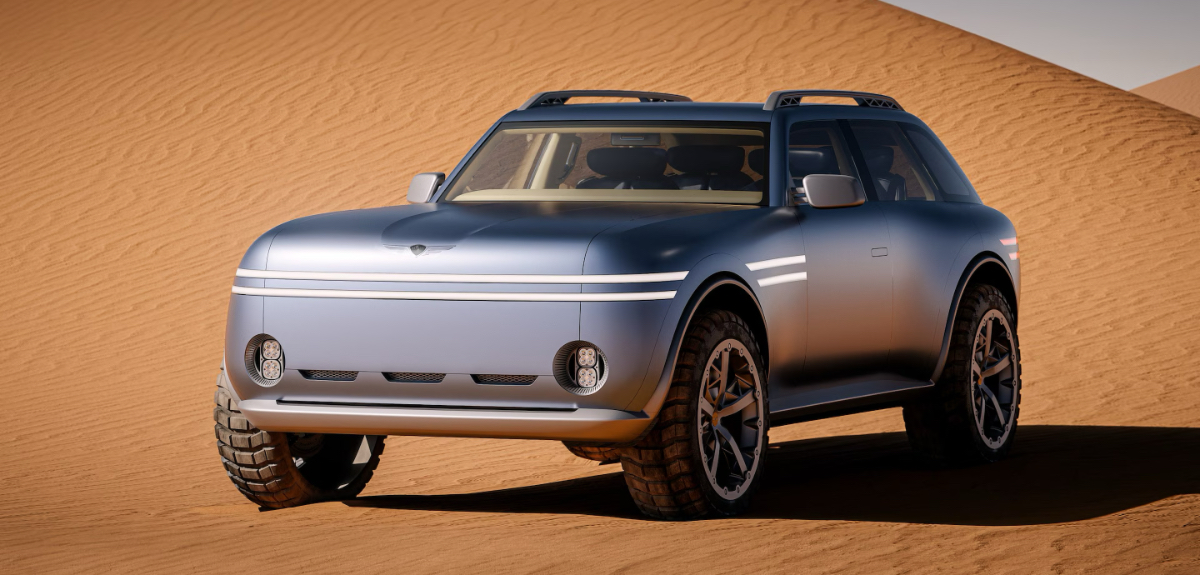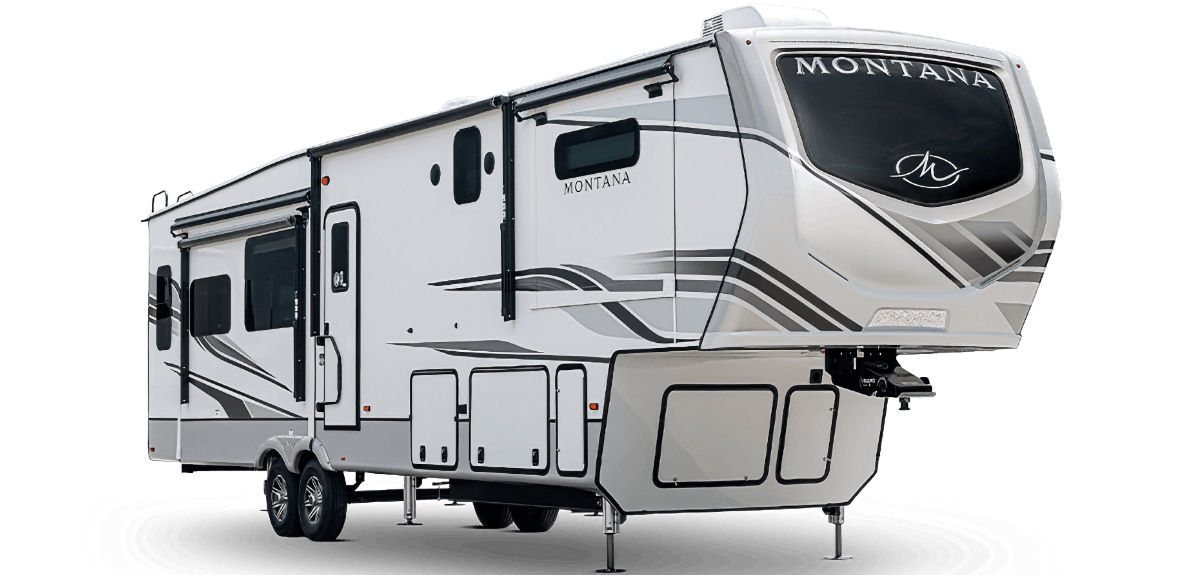Grounded RV: The Spark of Inspiration
The Story of e-RV Start-Up Grounded Roams From Wide-Ope Spaces to Detroit's Factory Floors
Image Caption: Photo Credit: Grounded
It began, as so many great stories do, on the open road. Sam Shapiro, the prototypical young high-tech professional, had left pandemic-era Manhattan, his advertising-tech job and his 200-square-foot apartment behind—seeking bigger things, perhaps, in an even smaller space. He had retrofitted a Chevy Express cargo van, the roof so low he couldn’t stand up inside.
In that van and its 50 or so square feet of living quarters, he headed out on the highway.
“I had a couple of drawers,” Shapiro recalls. “A couple storage cabinets. A table that turned into a bed, so you could just drop the table and slide the pillows down—and that was the bed. I put in a little 12-volt battery to power the lights and charge my laptop. It had two solar panels, a small water tank with a sink, and that was pretty much it. No shower, really.” Shapiro explored America with this minimalist set-up, cooking on a two-burner Coleman stove, tuning in to the great outdoors and travel’s romance and challenges.
Fast-track forward a couple of years: in August 2022, Shapiro launched Grounded, a Detroit-based start-up manufacturing all-electric, solar-powered camper vans. Its debut product, the G1, hit the road this year, with mod interior design, app-controlled appliances and room for much larger living than in Shapiro’s Chevy. The company is set to expand its range, with a space-agey aerodynamic towable slated for 2025 and hints of an evolved camper van.
We caught up with Shapiro during the busy days of the Detroit Auto Show to hear more about Grounded’s origins and free-roaming ambitions
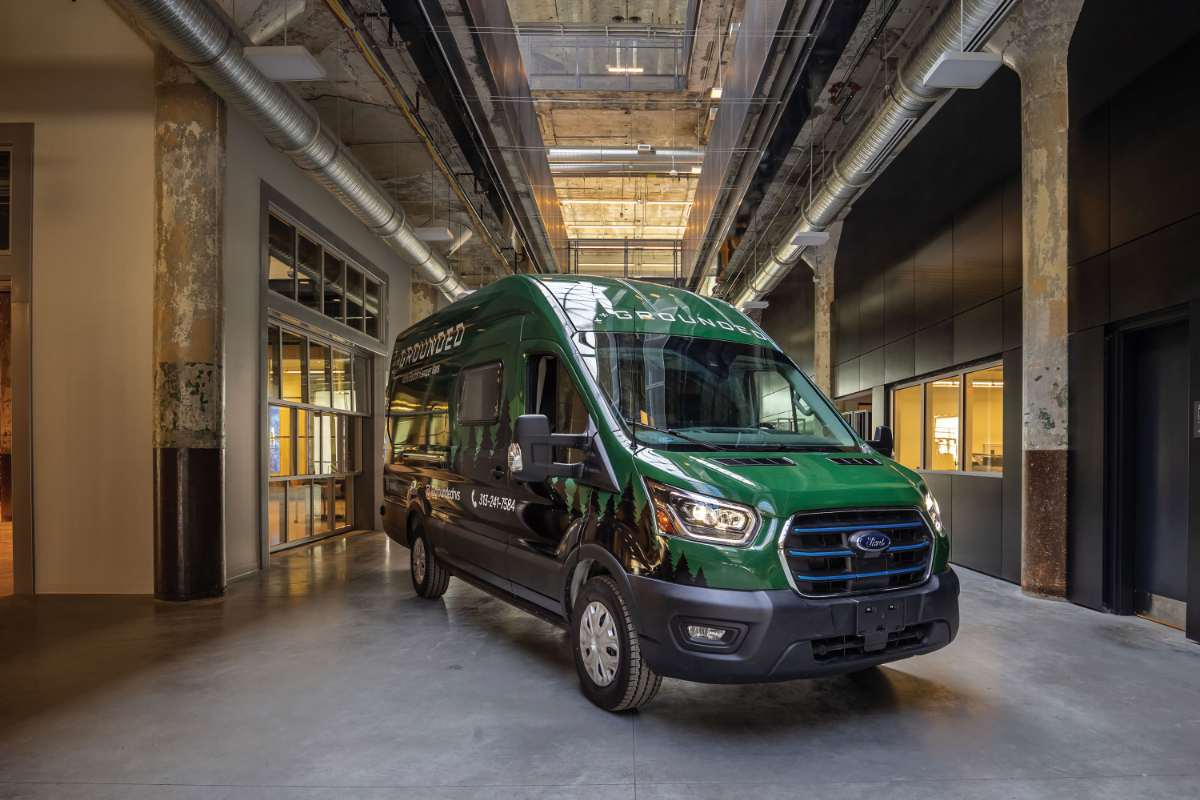
Photo Credit: Grounded
RV Magazine: Tell us more about how your DIY road trip stirred your interest in this industry?
Sam Shapiro: That experience changed my perspective on how people can live, and on what you actually need and don’t need. I had never actually been in an RV before that. I wasn’t a person who grew up going on RV trips with their family. And one thing I really loved, as a modern tech worker, was that even though the experience was so minimal and bare, I could still do my job. I was still working for eight to 10 hours a day. I was working on my laptop in the van or on a table outside, sometimes in the desert—in all climates, really.
RV Magazine: What connected that experience to a specific focus on electrics?
Sam Shapiro: When you travel big distances, like I was, gas gets really, really expensive. There’s obviously the pollution aspect. There’s the moment when you need to charge your house battery and you don’t have sun for your solar, and you’re running your engine and blowing smoke around the campground, making noise and being disruptive. I looked around, and I just felt there could be a better product to address some of core issues.
RV Magazine: Grounded offers a modular design approach, with piece-by-piece choices on interior design. What’s behind that?
Sam Shapiro: Basically, it’s a grid system. People can choose from a menu of components—I want this piece here, this piece here, this piece there. Then our manufacturing process allows us to build these things at scale and deliver orders quickly. Often the options are, either pick a pre-determined layout, or or go to a small custom shop—you’re going to pay a lot of money and there’s going to be a huge lead time. We’re trying to straddle those two, offering customization, but at a scale you find from big manufacturers.
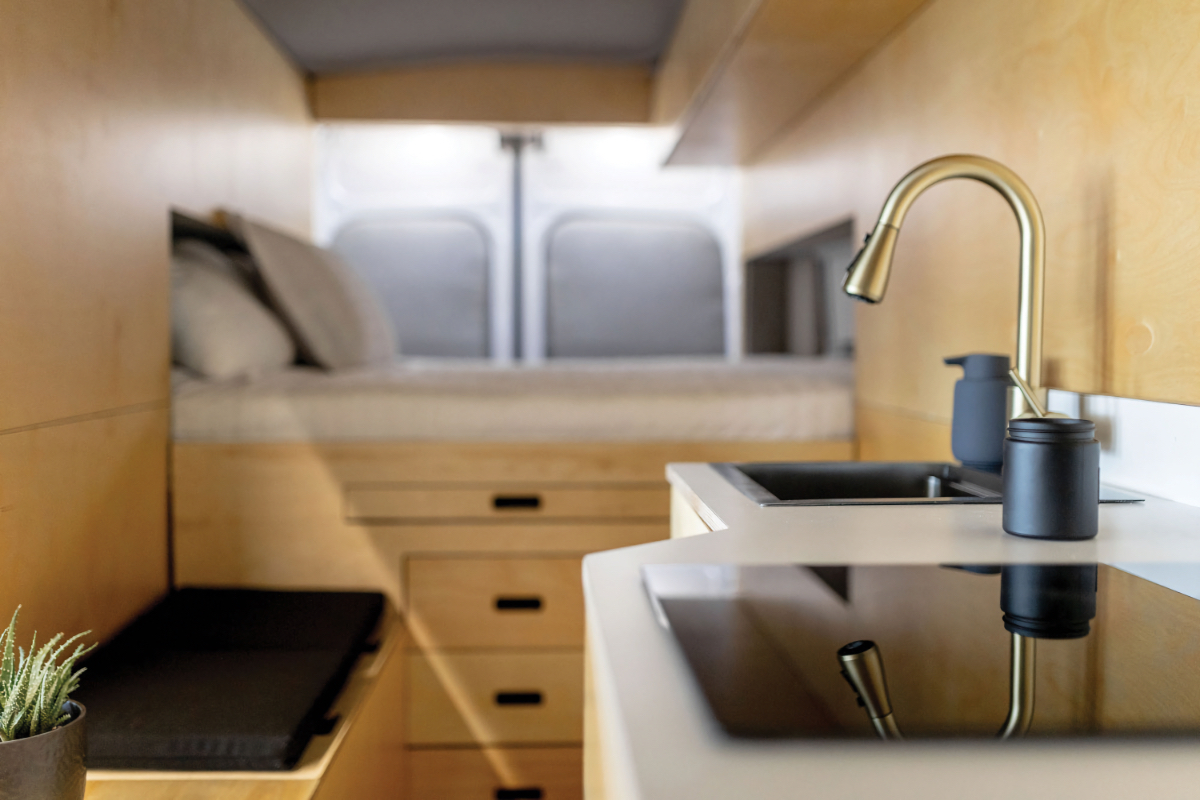
Photo Credit: Grounded
RV Magazine: On the manufacturing note, you’re in Detroit. Did you always know Grounded needed to be based there?
Sam Shapiro: It definitely required investigation. My co-founders and I looked at quite a few cities. We were looking at Austin—a lot of manufacturing and tech is happening there, and it’s a hub for this lifestyle. At the 11th hour, we got an invitation to Newlab in Michigan Central. In the Corktown neighborhood, near downtown Detroit, there’s a lab for hardware start-ups in the mobility and transportation space: a 270,000-square-foot facility, with millions of dollars of manufacturing equipment inside that startups have access to. We’re doing electric RVs. There are also electric ATVs, electric motorcycles and electric bicycles.
It’s not only about the space and equipment. We’re at the center of the startup ecosystem within Detroit now. It was a great decision, thinking about Detroit as the epicenter of automotive manufacturing. We are trying to change fundamentally how these things are built, and build them for scale. So between the suppliers, the contractors and the whole system of resources here in Detroit, it makes a lot of sense for us.

Photo Credit: Grounded
Sam Shapiro
Shapiro holds degrees from Washington University and Georgia Tech; his resumé includes a stint at rocketry innovator SpaceX.


